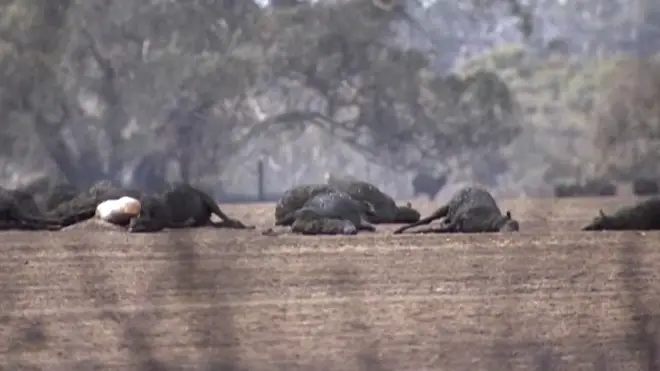
Paul Brand 10am - 12pm
5 January 2020, 14:32 | Updated: 6 January 2020, 13:43
Over 500 million wild animals are estimated to have been killed in the fires in Australia.
Andrew Castle asked Dominic Dyer: "I was reading yesterday that some species may be driven to near extinction, is that accurate?"
Dyer replied: "The University of Sydney have estimated that maybe 500 million wild animals have been killed so far and that doesn't include insects, birds and bat and frogs. It does include marsupials and mammals and birds.
"And yes, you know, you've had terrible wildfires in Australia for many decades but these are the worst in living memory. I think at the moment, they estimate that 14.6 million hectares have been burned.
"You know, that's over 14 times what was lost in the Amazon last year when we had the fires there that gained global attention. So you know, you have species of animals that are under extreme threat.
"You've lost 8000 koalas in New South Wales, that's 30% of the population. You're potentially going to lose other very rare endangered animals as well, for example, like the Bristol bird or the dunnarts, which is an insect-eating marsupial."

He added: "These animals are under severe threat already and I think the extent of these fires and the damage they're doing and it's not just being burned and killed now, it's the fact that their habitats are being destroyed for the foreseeable future.
"We're going to find it very difficult to find food for those animals to survive."
Castle and Dyer then spoke about veterinary personnel volunteering to help animals, such as koalas and kangaroos.
Dyer commented: "Let's not forget, this is a human tragedy. 23 people have died, over 1500 people have lost their homes. I've been in contact with my relatives, a number of them at the moment are at risk of losing their homes and they've got their pets and things to worry about over there. So it's a human tragedy but it's a massive ecological tragedy as well.